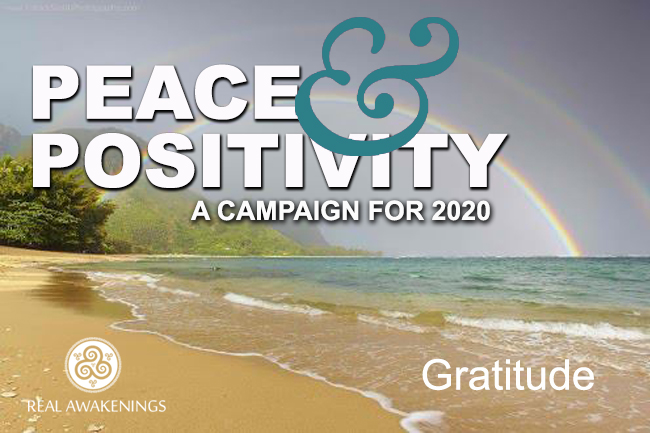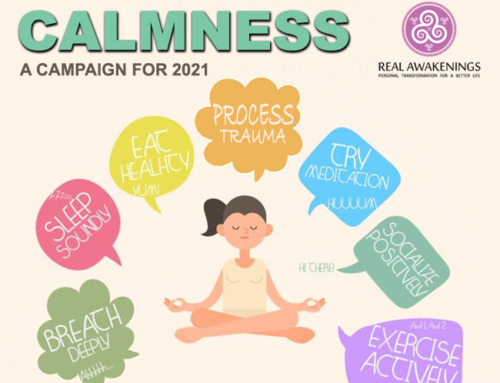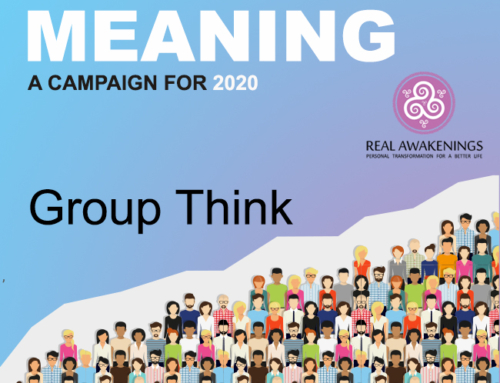Gratitude is the Best Attitude
It all begins with you
Experts say that over time, our attitudes morph into belief systems. Those belief systems develop into perceptions, and perceptions then become the automatic unconscious lens through which we experience the world. Behavior follows suit. Starting at the beginning, by monitoring our attitudes, can be the first step towards increasing awareness, and preventing the development of undesirable unconscious patterns.
But how do you monitor and maintain a positive attitude in times of a crisis? Presently, Corona is a great example we can all relate to, but any highly stimulating crisis or situation will do, personal or global. Initially, most of us react to emergencies, or novel and highly charged situations with a stress response, and rightfully so. The normal stress response mechanism is there by design, and for good reason. The problem is when it becomes chronic. We are not meant to experience ongoing chronic stressful stimuli. It can be difficult to maintain hope and positivity when anger, hate, reactivity, conflict, violence and fear is repeated plastered 24/7 throughout every form of media imaginable. The percentage of natural disasters, disease, war, political discord, and trauma far outweighs anything positive happening in the world. People aren’t seeing enough examples of love, acceptance, compassion and acts of goodwill. It’s not exactly a new phenomenon, but it’s become worse with technology. Navigating the continuous assault to the nervous system can be challenging, let alone witnessing how it trickles down into everyone’s psyche, and the collective at large.
To avoid a runaway freight train of negativity when you see it start to take hold, checking the pulse of your attitude may be worth the introspection. In addition to shutting off the TV, and unplugging from your phone and social media, start asking yourself some questions. Get back to basics like, “What exactly am I feeling? What is the origin of this feeling? How reliable is the source of this information? Do I trust this source? Am I coming to the right conclusion? How is this affecting me? These are all good starting points to disengage from the whirlwind and migrate back to centeredness. Once you’ve taken a reality check, separating fact from fiction, you can see whether or not your attitude has been compromised. Granted, many people are faced with extremely stressful circumstances such as caring for someone ill, going through a divorce or significant financial setback, none of which can minimized as they have inherent complexities. But in general, taking a quick look at ourselves is more than beneficial. If you see a pattern of diminished optimism, unexplained crabbiness, or increase petulance, you may want to attempt to break the automatic chain of events. If you recognize a shift in your attitude, you may also see the impact of it as well.
So, the first thing to experiment with is yourself, and your attitude. One way to shift your internal state, and unhook from the negative mental loop, is to switch to a level of gratitude. The nature of an untrained mind is to gravitate towards the negative. So break the cycle by looking at what you do have instead of what’s wrong. Is the cup half full or half empty? Comparing is not the greatest thing to do either, but in this case it’s pretty clear that there is a lot of suffering in the world and some people have it really bad. From their vantage point, being upset about staying home with WIFI and Internet, and having food delivered during a shutdown isn’t all that horrible. If you truly took the time to look at any hero, at any point in history, you would find out they didn’t achieve unanimous hero status without a tremendous degree of hard work and sacrifice. You don’t see their struggles, hardships, obstacles or personal history, you just see the end result and perceived status or measure of success. Shifting your focus, being open-minded, and feeling gratitude, even for a short time, can alter the direction and flow of energy that normally goes from a bad attitude to cynicism, to gratitude and good fortune. The state of gratitude becomes the foundation for your perspective, rather than an attitude of victimhood. This does not suggest in any way that all rational though is abandoned and a complete false joy-addict persona be the answer (in itself a form of denial and escapism). We all have to start somewhere and the buck stops with each of us. At base level we can all stop, take stock, and be grateful for what we have.


